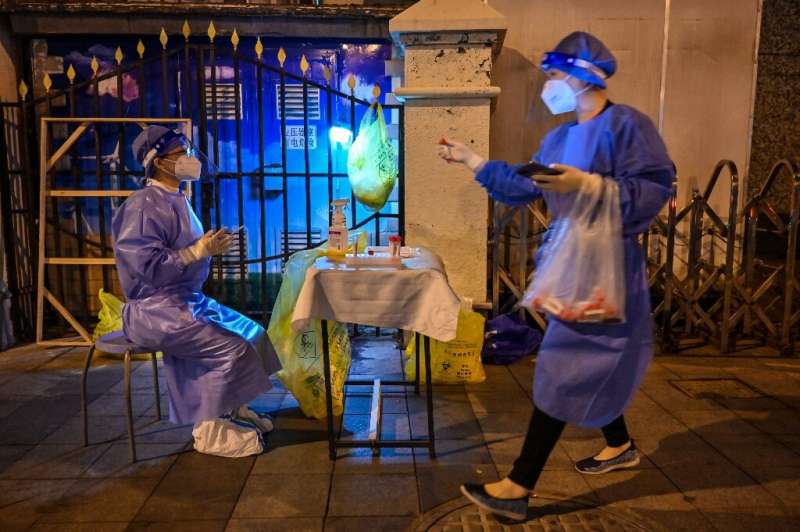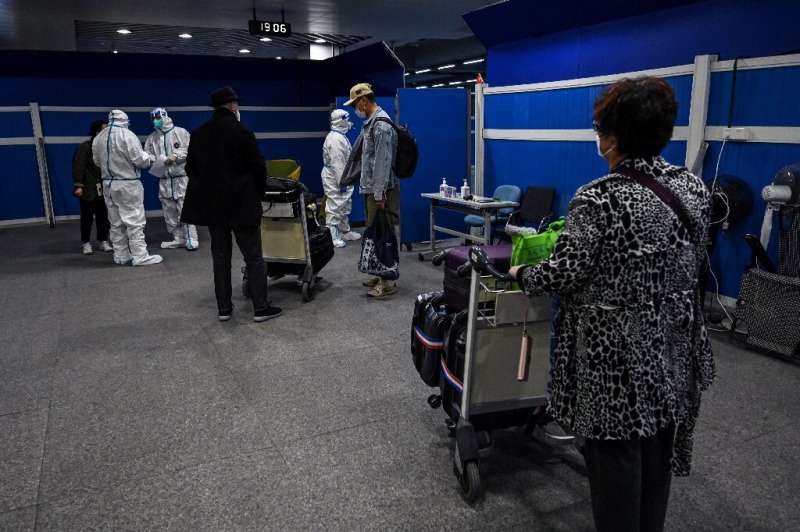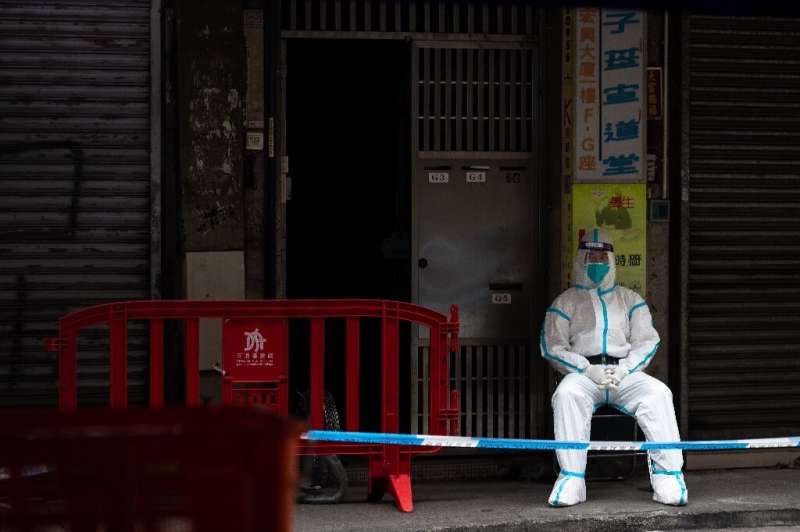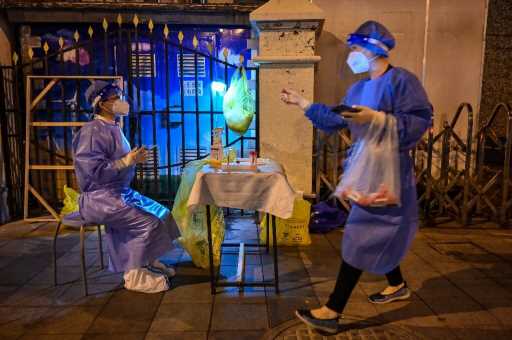
China announced the relaxation of some of its hardline COVID-19 restrictions on Friday, after authorities had vowed to stick to a zero-tolerance virus approach despite mounting economic damage.
The country is the last major economy welded to a strategy of stamping out virus flare-ups as they occur, through a combination of snap lockdowns, mass testing and lengthy quarantines.
Top leaders had pledged to stick “unswervingly” to the policy, which has forced business closures, roiled international supply chains and weighed heavily on growth.
But a notice from the country’s disease control agency on Friday said the Politburo Standing Committee—the apex of power in China—met Thursday to rubberstamp limited relaxations.
According to the notice, the quarantine period for inbound travellers will be cut from 10 days to eight, consisting of five days in a state isolation centre and three days at home.
Inbound arrivals will still be required to undergo six nucleic acid tests and will not be allowed to freely set foot outside during those eight days, the notice says.
It adds that travellers will only be required to show one negative COVID test within 48 hours of boarding flights to China, a reduction from the current two tests.
Relaxing strict policies
The new rules single out “important business personnel” and “sports groups” as examples of privileged groups permitted to skip quarantine as long as they remain in a virus-secure “closed loop” for the duration of their stays.

It added that a so-called “circuit breaker” mechanism on inbound flights would be abolished, bringing an end to a policy that saw the snap closures of flight routes if a certain proportion of passengers tested positive for the virus.
In further signs of easing, the notice did away with the requirement to identify and isolate “secondary close contacts”—those who may have come into contact with people who recently passed near infected people.
A domestic virus risk system has been reduced from three tiers to two, with areas to be labelled as either “high-risk” and subject to curbs, or “low-risk” with minimal restrictions.
People travelling from high- to low-risk areas will be required to undergo seven days of isolation at home, instead of staying in centralised facilities.
Places will be defined as “low-risk” if they record zero new infections for five successive days.
Workers in environments where exposure to the virus is higher—such as cabin crews, airport staff and quarantine hotel personnel—will undergo shortened quarantines, the notice said.
Chinese stocks listed in Hong Kong soared on Friday following the news, with the Hang Seng’s China Enterprises Index up nearly eight percent in afternoon trading.
The wider Hang Seng Index was also up 7.5 percent.
Hong Kong’s stock exchange has been one of the world’s worst performing major indexes this year, dragged down by the city’s only recently relaxed coronavirus curbs, China’s economic woes and the wider global slowdown.

‘Unswerving’ commitment
China has reopened far more slowly than most other countries, a move that has kept infections to a minimum.
The country has recorded just over 5,200 COVID deaths, compared with more than a million in the United States.
But pandemic fatigue has begun to set in as the onerous curbs show little sign of letting up, while grinding lockdowns of the kind that hit Shanghai earlier this year have sparked isolated public protests.
And the economic impact has been so severe that analysts now expect China to miss its stated annual growth target of around 5.5 percent by a wide margin.
Despite the problems, Chinese state media reported this week that top leaders had vowed not to waver from the zero-COVID policy, echoing a vow last week to “unswervingly” stick to the strategy.
Yet officials have also taken aim in recent weeks at heavy-handed enforcement, blasting what they have called “one-size-fits-all” and excessively bureaucratic local curbs.
Friday’s notice added to the chorus, “strictly forbidding” pre-emptive or overly lengthy lockdowns, unapproved school closures and arbitrary suspensions of work and traffic.
It vowed to “speed up” COVID vaccinations, especially boosters among the elderly population—historically one of the groups most reluctant about getting their jabs—and boost reserves of antiviral COVID treatments.
China recorded 10,535 new domestic cases on Friday, the vast majority of which were asymptomatic, according to the National Health Commission.
© 2022 AFP
Source: Read Full Article
